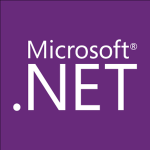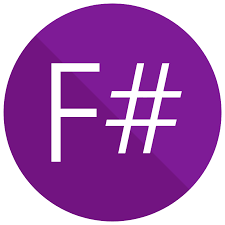F# and C# for your next .NET project? We break down the debate with key insights into functional and object-oriented programming to inform your choice.
More...
When we are looking at .NET development, two programming languages often come into the spotlight:
F# vs C#.
Both languages have their own unique strengths and use cases, making the choice between the two a matter of careful consideration.
This article aims to provide an extensive overview of F# vs C#, highlighting their similarities, differences, and helping you make an informed decision when it comes to choosing your .NET ally.

Key Takeaways
f# vs c#: The Debate on Functional vs Object-Oriented Programming
Before diving into the specifics of F# vs C#, it's essential to understand the debate between functional and object-oriented programming paradigms.
OOP
Imperative programming, which includes object-oriented programming, focuses on step-by-step processes and mutable state. Object-oriented languages like Java and C++ typically follow the imperative paradigm.
Functional Programming
On the other hand, functional programming emphasizes declarative programming, where the desired results are prioritized over the step-by-step approach. In contrast, functional languages like LISP, Python, Haskell, and F# follow the declarative paradigm.
However, some programming languages, including Java, C++, and C#, incorporate aspects of both imperative and functional programming. JavaScript, a multi-paradigm language, offers features of imperative, object-oriented, and functional programming.
Imperative Programming
Imperative programming has several benefits, including easy understanding, readability, and novice developer-friendly workflow descriptions. The step-by-step approach of imperative programming makes it accessible to developers of all levels of expertise. Additionally, many traditional applications, such as hypertext, hypermedia, client-server systems, and automation, lend themselves well to imperative programming.
Despite its benefits, imperative programming has its drawbacks. Code bloating, decreased readability, and an increased potential for bugs and errors are common issues faced by developers. Imperative programming often requires extensive debugging and testing, leading to delays in product releases.
Functional Programming
Functional programming offers several advantages over imperative programming. It prioritizes efficiency, reduced bugs, and increased security against cyber attacks. While functional code may be less readable at first, it significantly reduces developer time spent on debugging and testing. Functional programming excels in parallel processing, lazy evaluation, modularity, and reusability.
Functional programming is particularly popular among academics and data scientists for manipulating large data sets. Its focus on immutability and pure functions makes it easier to reason about and test code, leading to more stable and predictable applications. However, functional programming can be memory-intensive and may reduce overall performance in certain scenarios.
Functional Programming in C#
C# is primarily an object-oriented and mutable/stateful language. However, it does offer functional programming capabilities that can be implemented in various ways. One way to introduce functional programming features into C# is through the Language Integrated Query (LINQ) framework.
LINQ provides functions for operating on lists or sequences, creating new instances instead of mutating existing ones. This functional approach allows developers to write code that is more concise, readable, and maintainable. Additionally, lambda expressions, which are anonymous functions, are a key aspect of functional programming in C#. Lambda expressions enable developers to write code in a more declarative manner, focusing on the desired result rather than the step-by-step process.
Method chains, also known as fluent interfaces, can also be used in C# to imitate pipelines in certain situations. Pipelining, a common feature in functional programming, is not built into C#, but developers can mimic pipelines using method chains. C# offers the functionality of StringBuilder to achieve pipelining. Method chains in C# also allow for replicating currying, a feature of functional programming that enables receiving arguments at different times. However, currying in C# is not as efficient as in F#.
Functional Programming in F#

F# is a functional-first programming language designed for the .NET platform. It emphasizes immutability and pure functions, making it an ideal choice for functional programming enthusiasts. F# excels in data manipulation, parallel processing, and lazy evaluation. It is particularly popular among academics and data scientists for its ability to handle large data sets efficiently.
F# provides native support for functional programming constructs, making it easier to write purely functional code. Creating immutability in F# is more straightforward compared to C#, as F# provides immutable data types by default. This emphasis on immutability leads to more stable and predictable code.
Who Has the Edge for Functional Programming in f# vs c#?
When it comes to choosing between F# and C# for functional programming, F# has the edge. F# is a functional-first language, while C# is primarily object-oriented and mutable/stateful. F# provides native support for functional programming constructs, making it easier to write purely functional code. On the other hand, C# offers functional programming capabilities through features like LINQ and lambda expressions, but it still leans towards the imperative paradigm.
Right Language for Functional Programming
Choosing between F# and C# for functional programming depends on project needs and the skill sets of the development team. If your application is data-intensive and prioritizes user interface elements, F# may be the better choice. F# excels in data manipulation and parallel processing, making it suitable for handling complex data sets.
However, comfort level with each language should also be considered. If your team has extensive experience with C# and limited exposure to F#, it may be more efficient to leverage C#'s native functional capabilities rather than introducing a new language into the mix.
Additionally, the skill sets and experience of your team members should be taken into account when working with different languages. Difficulties may arise when team members have varying levels of exposure to F# and need to work with code written by other developers.
Comparison Table: F# vs C#
To provide a clearer understanding of the distinctions between F# and C#, below is a table that compares key aspects of both languages:
feature | F# | C# |
|---|---|---|
Paradigm | Functional-first, with OOP support | Primarily object-oriented, with functional features |
Syntax | Struts is a popular Java framework for developing web applications based on the MVC architecture. | More verbose, explicit |
Type System | Strong type inference | Requires explicit type declarations |
Immutable Data | Immutable by default | Mutable by default, but can be immutable |
Concurrency | Advanced pattern matching, agent-based model | Task-based asynchronous pattern, PLINQ |
Interoperability | Seamless with other .NET languages | Seamless with other .NET languages |
Libraries | Rich for functional paradigms | Extensive and diverse for all needs |
Community | Smaller, focused | Large, extensive |
Performance | Excellent in computational work | Broadly high-performing across applications |
Tooling | F# Interactive, full IDE support | Visual Studio, ReSharper, and others |
Ideal Use Cases | Data science, analytics, parallel processing | Web and desktop applications, cloud services |
Ultimately, the decision to use F# vs C# will hinge upon the specific requirements of your project, the importance of functional features, and the existing expertise within your development team.
For those looking to augment their team with expertise in either language, or both, IT staff augmentation services can provide the necessary talent and flexibility to meet your project's demands.
Such services can help bridge any skill gaps and ensure that your team is equipped to tackle the challenges of modern .NET development.